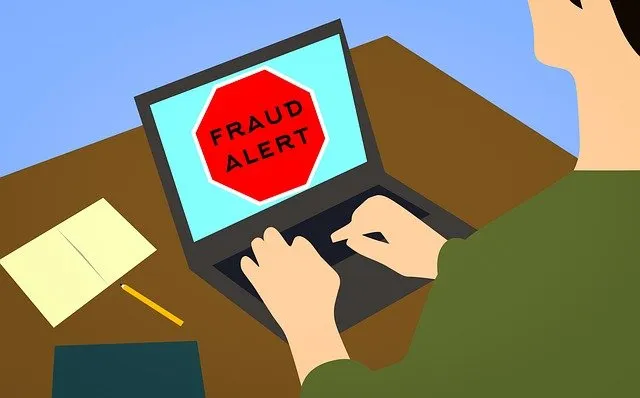
¡Hola, amigos! Un gusto acompañarlos de nuevo en esta interesante actividad. La comunidad Ladies of Hive nos presenta su nuevo concurso con dos opciones, he hecho la traducción para mostrarles a continuación. He seleccionado participar con la segunda opción, invito a @lilianajimenez.
Para esta semana queremos saber:
1️⃣ ¿Sabes cómo ser un defensor efectivo de tu ser querido o amigo cuando está lidiando con un problema de salud mental? ¿Sabe cómo responder, a quién contactar para obtener ayuda? ¿Alguna vez te has enfrentado a un desafío así?
O
2️⃣ Las estafas románticas van en aumento y cualquiera puede ser un objetivo. Los estafadores crean perfiles falsos en sitios y aplicaciones de citas, o contactan a sus objetivos a través de sitios de redes sociales populares como Instagram y Facebook. Entablan una relación con sus víctimas y generan confianza, a veces durante meses o incluso años. Eventualmente piden dinero, a menudo fingiendo que lo necesitan para facturas médicas, gastos de viaje o emergencias inesperadas.
¿Qué hará para evitar ser víctima de estafas de citas en línea?
La estafa es una acción detestable que deja daños no solo económicos sino emocionales. En el plano romántico la persona suele presentarse camuflado en una personalidad atractiva que muy pronto deja ver las verdaderas intenciones. Esto suele ocurrir con frecuencia en el mundo real, incluso las personas llegan a casarse sin conocerse bien, con las consecuencias garrafales muy conocidas.
Si esto ha ocurrido cuando las personas se han visto, tienen cierto tiempo de trato y hasta creen conocerse, qué no pasará con seres que no han tenido la oportunidad de verse en sus cotidianidades
Por supuesto que no voy a generalizar, cada día son más quienes han iniciado su relación a través de internet, han construido grandes amistades y formado parejas con éxito. No obstante, en menor medida quizá, hay quien decide hacer su modus operandi en el mundo virtual, engaña, roba, y más. Por supuesto que hay que cuidarse.
Hay un tipo de gente que consigue placer en el anonimato, desde allí ataca, crea bulos, intenta acciones fraudulentas, y más. El medio virtual ofrece el caldo de cultivo perfecto para que algunos se desdoblen y muestren una personalidad preparada para el abuso y el daño a los demás, en cualquier forma. No les importa la lesión moral o el quiebre económico que puedan generar. Dentro de este tipo de individuos están los que, escudados en una falsa identidad, hacen todo tipo de propuestas indecorosas o van paso a paso hasta lograr su cometido: algún ataque de tipo sexual, robo, incluso ocasionar la muerte.
Hay personas que no ven a tiempo el potencial daño, ingenuamente van mostrando más de sí, dando información personal y cayendo en la trampa del embaucador: hacen transferencias de dinero o dan sus propias contraseñas bancarias, con la ceguera que les da el «amor».
Este es un tema con muchas aristas, tiene que ver con autoestima, educación, necesidades afectivas, soledad o abandono, y más. La desinformación se suma y muchas personas piensan que eso no les va a ocurrir a ellos y no toman previsiones, no ven la malicia y caen en el engaño.

Las redes sociales se vuelven aliadas en estos casos; el afán de tener amigos es tomado en cuenta por estas plataformas, que van creando interrelaciones y proponiendo invitaciones de gente desconocida, pero que es amigo del amigo. Esta es una forma de entrada del estafador, solicita amistad a los amigos de la persona que tiene en la mira, como algunos no tienen reparos en aceptar a cualquiera que les solicite, lo hacen, entonces el individuo puede ver y contextualizar situaciones, obtiene información para tramar el engaño.
Muchas personas se cuidan de no subir fotografías personales de manera pública, pero el amigo, conocido o familiar sí lo hace e igualmente lo expone, este material es utilizado por el timador para sus fines ocultos, se llena de información para establecer contacto pareciendo familiar o de confianza.
La única solución que he aplicado y recomiendo es la de no aceptar un nuevo contacto si no se conoce a ciencia cierta quién es. Y aunque parezca algo drástico, si una persona se presenta con alguna mala intención, dejar clara nuestra posición, y si insiste, eliminar el contacto y bloquear de una vez, es lo mejor.
Gracias por tu lectura, mi contenido es original.
English version

Hello friends! A pleasure to accompany you again in this interesting activity. The community Ladies of Hive presents us its new contest with two options, I have made the translation to show you next. I have selected to participate with the second option, I invite @lilianajimenez.
For this week we want to know:
1️⃣ Do you know how to be an effective advocate for your loved one or friend when they are dealing with a mental health issue? Do you know how to respond, who to contact for help? Have you ever faced such a challenge?
EITHER
2️⃣ Romance scams are on the rise and anyone can be a target. Scammers create fake profiles on dating sites and apps, or contact their targets through popular social networking sites like Instagram and Facebook. They establish a relationship with their victims and build trust, sometimes for months or even years. They eventually ask for money, often pretending they need it for medical bills, travel expenses, or unexpected emergencies.
What will you do to avoid becoming a victim of online dating scams?
Romance Scams
The scam is a detestable action that leaves not only economic but emotional damage. In the romantic plane, the person usually appears camouflaged in an attractive personality that very soon reveals the true intentions. This usually happens frequently in the real world, even people get married without knowing each other well, with the well-known blundering consequences.
If this has happened when people have seen each other, have a certain amount of contact time and even think they know each other, what will not happen to beings who have not had the opportunity to see each other in their daily lives?
Of course I am not going to generalize, every day there are more people who have started their relationship through the internet, have built great friendships and successfully formed couples. However, perhaps to a lesser extent, there are those who decide to make their modus operandi in the virtual world, cheat, steal, and more. Of course you have to take care of yourself.
There is a type of people who derive pleasure from anonymity, from there they attack, create hoaxes, attempt fraudulent actions, and more. The virtual environment offers the perfect breeding ground for some to unfold and show a personality prepared for abuse and harm to others, in any way. They do not care about the moral injury or the economic breakdown that they may generate. Within this type of individuals are those who, shielded by a false identity, make all kinds of unseemly proposals or go step by step until they achieve their goal: a sexual attack, robbery, even causing death.
There are people who do not see the potential damage in time, they naively show more of themselves, giving personal information and falling into the trickster's trap: they make money transfers or give their own bank passwords, with the blindness that "love" gives them. .
This is a topic with many edges, it has to do with self-esteem, education, emotional needs, loneliness or abandonment, and more. Misinformation adds up and many people think that this will not happen to them and do not take precautions, do not see the malice and fall into deception.
Social networks become allies in these cases; The desire to have friends is taken into account by these platforms, which create interrelations and propose invitations from unknown people, but who are friends of friends. This is a form of entry for the scammer, he requests friendship from the friends of the person he is targeting, as some have no qualms about accepting anyone who requests them, they do so, then the individual can see and contextualize situations, obtain information to plot deception.
Many people are careful not to upload personal photos publicly, but the friend, acquaintance or family member does and also exposes it, this material is used by the scammer for his hidden purposes, he fills himself with information to establish contact by seeming familiar or trustworthy.
The only solution that I have applied and recommend is to not accept a new contact if you do not know for sure who it is. And although it may seem somewhat drastic, if a person shows up with some bad intention, making our position clear, and if he insists, eliminating the contact and blocking at once, is the best thing to do.
Thank you for reading,
My content is original.
I used google translate
Own images
pixabay images

